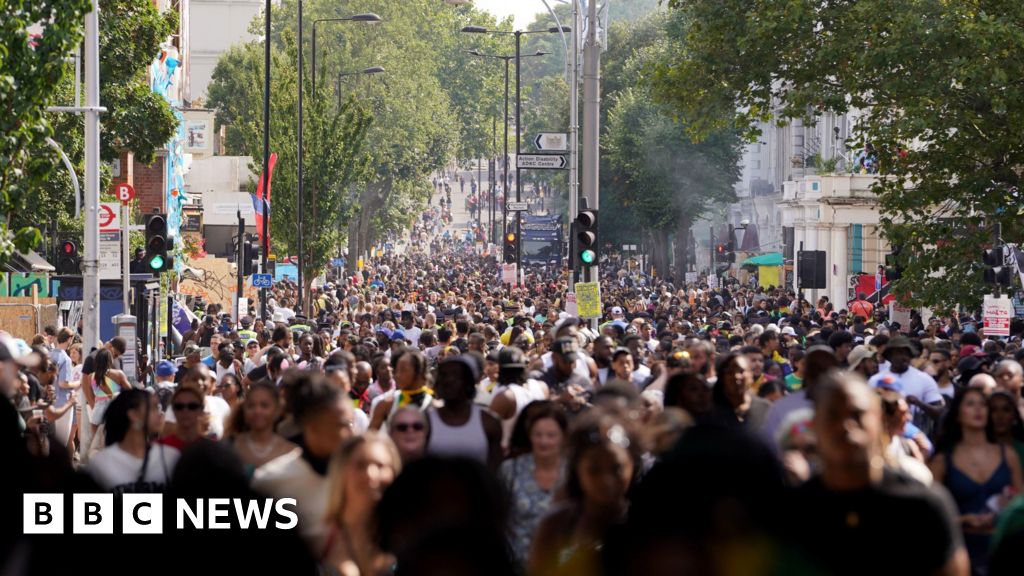Police to deploy dedicated drone team for Notting Hill Carnival
- BBC News
A dedicated drone team will be deployed at Notting Hill Carnival by the British Transport Police (BTP) for the first time as part of efforts to keep people safe.
The drones are fitted with four cameras including a wide angle and a zoom where they can identify a person from up to about 80m (260ft) away.
"We have a thermal imaging camera," explains drone operations manager Insp Chris Fells. "If someone is hiding in places that are difficult to see or its at night we can still locate those people."
The event is the largest street party in Europe, with some two million people expected to attend it over the weekend.
The images captured by the drones can be fed in real time to officers on the ground or back to the control room.
"We also have a laser rangefinder on this which means we can tag an object up to over a kilometre away and actually provide GPS coordinates of that person so that anyone responding to the incident can go to the right place," Insp Fells said.
Asked how the drones and the new control room will help, Supt Dominique Idannou said: "Its a challenge but the network weve got of extensive cameras plugged into our CCTV hub are critical in making sure that we can keep an eye on things and make sure that everyones safe.
"Generally weve got exceptional quality cameras that are really good for us in terms of identifying people and bringing offenders to justice. "
Marina Ahmad, chair of London Assemblys Police and Crime Committee, said the priority at the "massive" event was "for people to have a good time while being safe as possible".
Following last years Carnival, the Met Police warned the biggest risk was a mass casualty crowd crush.
Cdr Charmain Brenyah, from the force, said: "Crowd safety remains a significant concern in Carnival. A lot has been done this year to address that."
This will include the use of live facial recognition technology, which the Met announced it would deploy earlier this week.
While it claims the technology has aided in more than 1,000 arrests for serious crimes, civil rights organisations argue that facial recognition is less accurate for women and people of colour, potentially leading to racial bias.
Matthew Phillip, chief executive of Notting Hill Carnival Ltd, said organisers would keep people safe.
"This year with some extra resources, weve vastly expanded. Weve got a large crowd management team and resources around it, including extra cameras and information screens," he said.
Some medics will get around on foot or bike, and it is factored into training. Peter Hollely-Robins, from St John Ambulance, said: "We do lots of simulation exercises to prepare and we work very closely with the police."
Those using public transport to get to Carnival have been advised to check their route, with closures or changes affecting nearly all of the Tube stations in the area, as well as bus diversions being put in place.
Transport for Londons (TfL) Carl Eddleston said: "Some of the bigger stations like Paddington are about a 15 minute walk away and probably better places to go too, because they are obviously built and designed for big crowds."
TfL has a dedicated website showing the best and quickest options for people to use.
Listen to the best of BBC Radio London on Sounds and follow BBC London on Facebook, X and Instagram. Send your story ideas to hello.bbclondon@bbc.co.uk